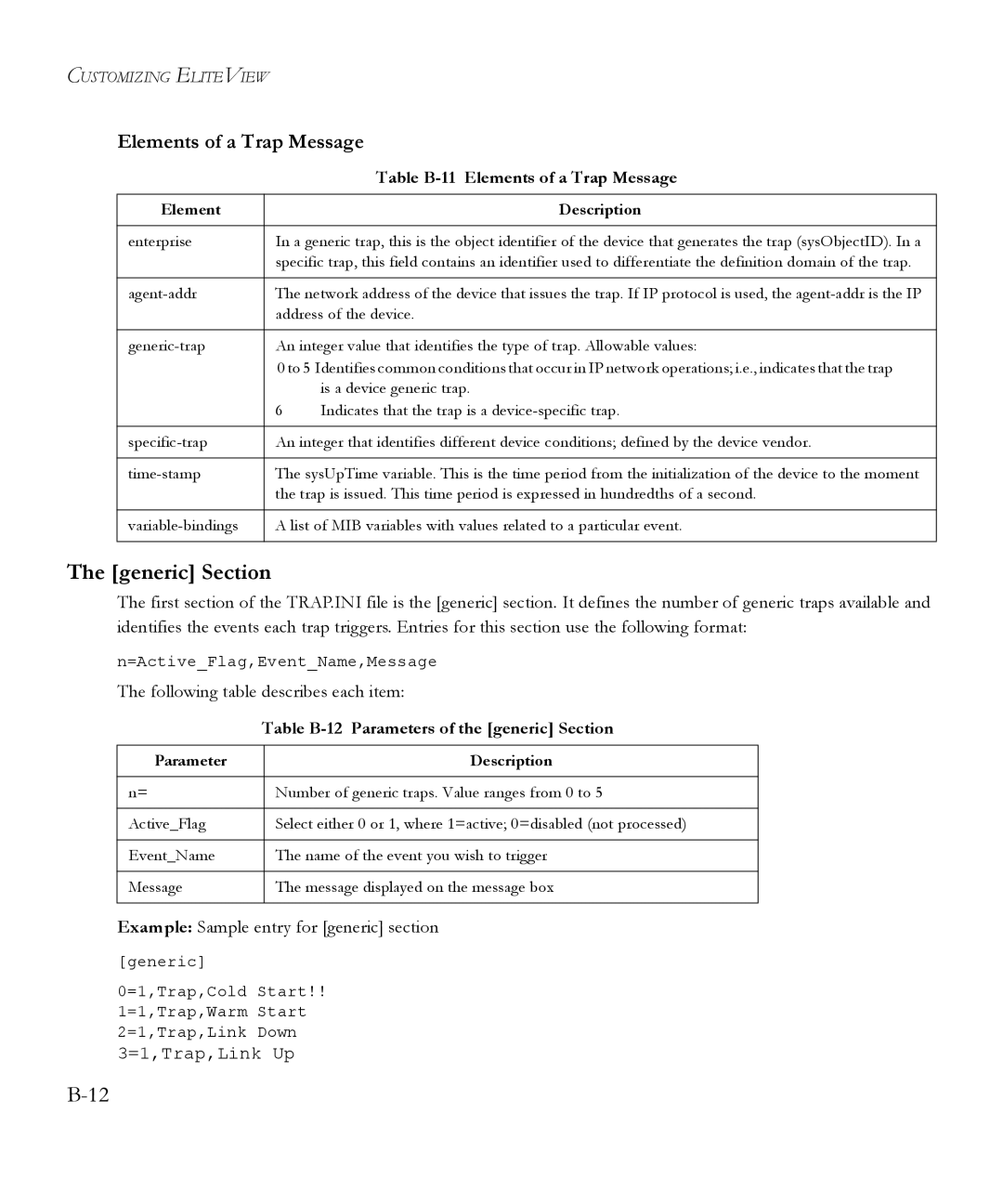CUSTOMIZING ELITEVIEW
Elements of a Trap Message
|
| Table |
|
|
|
Element |
| Description |
|
| |
enterprise | In a generic trap, this is the object identifier of the device that generates the trap (sysObjectID). In a | |
| specific trap, this field contains an identifier used to differentiate the definition domain of the trap. | |
|
| |
The network address of the device that issues the trap. If IP protocol is used, the | ||
| address of the device. | |
|
| |
An integer value that identifies the type of trap. Allowable values: | ||
| 0 to 5 Identifies common conditions that occur in IP network operations; i.e., indicates that the trap | |
|
| is a device generic trap. |
| 6 | Indicates that the trap is a |
|
| |
An integer that identifies different device conditions; defined by the device vendor. | ||
|
| |
The sysUpTime variable. This is the time period from the initialization of the device to the moment | ||
| the trap is issued. This time period is expressed in hundredths of a second. | |
|
| |
A list of MIB variables with values related to a particular event. | ||
|
|
|
The [generic] Section
The first section of the TRAP.INI file is the [generic] section. It defines the number of generic traps available and identifies the events each trap triggers. Entries for this section use the following format:
n=Active_Flag,Event_Name,Message
The following table describes each item:
| Table | |
|
|
|
Parameter |
| Description |
|
|
|
n= |
| Number of generic traps. Value ranges from 0 to 5 |
|
|
|
Active_Flag |
| Select either 0 or 1, where 1=active; 0=disabled (not processed) |
|
|
|
Event_Name |
| The name of the event you wish to trigger |
|
|
|
Message |
| The message displayed on the message box |
|
|
|
Example: Sample entry for [generic] section
[generic]
0=1,Trap,Cold Start!! 1=1,Trap,Warm Start 2=1,Trap,Link Down
3=1,Trap,Link Up
